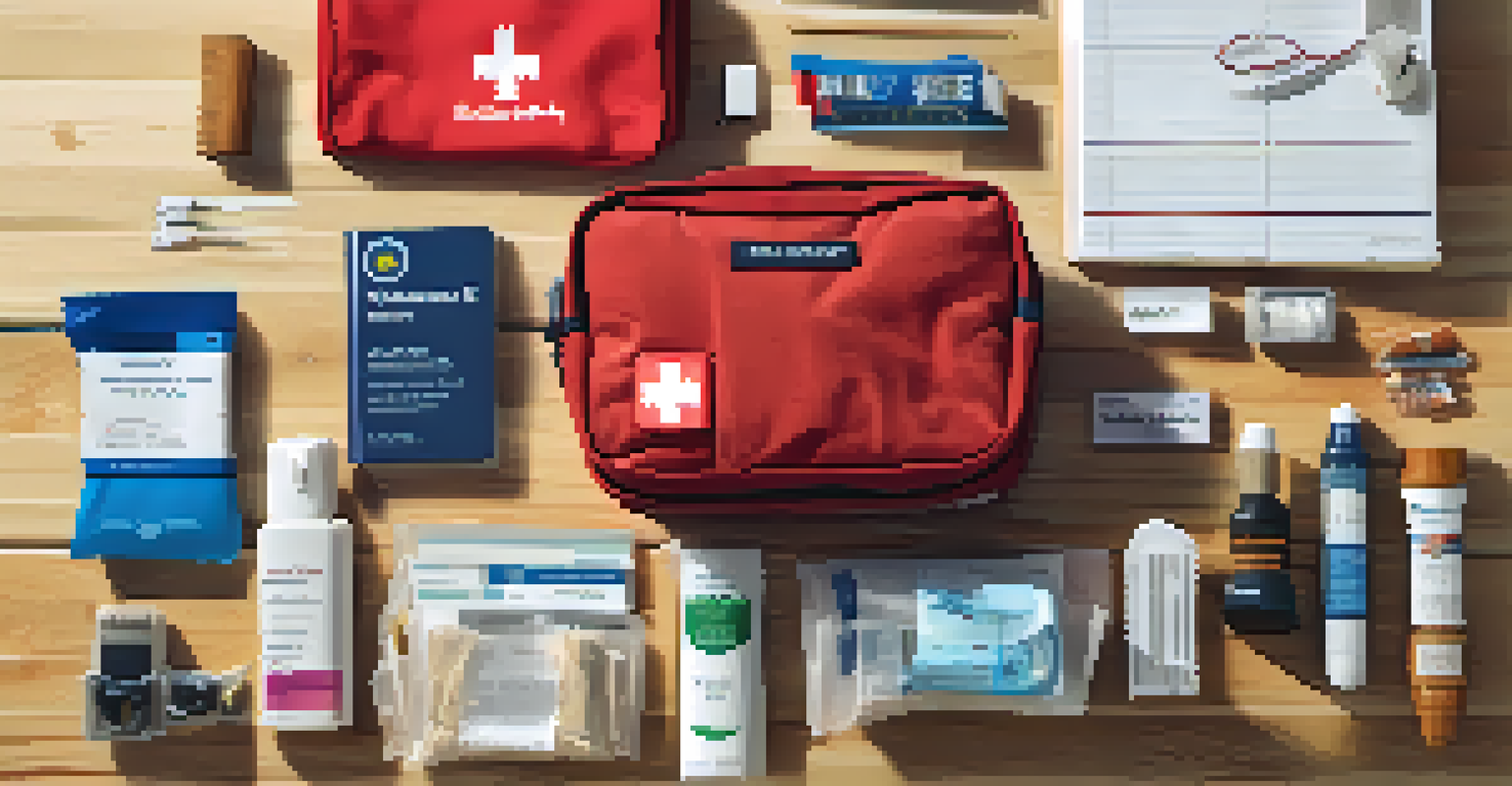How to Create a Crisis Travel Plan for Uncertain Times

Understanding the Importance of a Crisis Travel Plan
A crisis travel plan is essential for navigating unpredictable situations. Whether it's natural disasters, political unrest, or global pandemics, being prepared can make all the difference. This plan provides a safety net, ensuring you have a clear course of action when things go awry.
By failing to prepare, you are preparing to fail.
Imagine planning a road trip without checking the weather or road conditions; you'd likely encounter unexpected hurdles. Similarly, a crisis travel plan equips you with strategies to handle unforeseen events, allowing you to focus on your journey rather than panic.
Ultimately, having a crisis travel plan means you can travel with confidence, knowing you're prepared for whatever comes your way. It's about peace of mind and ensuring your safety and well-being while exploring new places.
Assessing Risks Before You Travel
The first step in creating a crisis travel plan involves assessing potential risks associated with your destination. This includes researching local conditions, political stability, and health risks. Websites like the CDC and State Department can provide valuable insights.

Consider your own comfort level with various risks. For example, if you're traveling to a region known for its political tensions, think about how you might respond in case of protests or unrest. This self-awareness will help you prepare more effectively.
Importance of Crisis Travel Plans
A crisis travel plan equips you to handle unforeseen events, ensuring safety and peace of mind while traveling.
By conducting thorough research and understanding the specific risks, you can make informed decisions about your travel plans. This proactive approach not only enhances your safety but also enriches your travel experience.
Creating a Flexible Itinerary
A flexible itinerary is a crucial component of your crisis travel plan. While it's tempting to plan every detail, flexibility allows you to adapt to changing circumstances. For instance, if a destination becomes unsafe, having alternate plans can save you from potential risks.
In the midst of chaos, there is also opportunity.
Think of your itinerary as a roadmap with multiple routes. If one path is blocked, you can easily divert to another without losing your sense of direction. This adaptability ensures that you can still enjoy your travels, even if things don’t go as planned.
Incorporating flexibility into your travel plans not only alleviates stress but also opens up opportunities for spontaneous adventures. Remember, travel is about exploration, and sometimes the best experiences come from unexpected changes.
Establishing Emergency Contacts and Resources
Having a list of emergency contacts is vital when traveling during uncertain times. This includes local authorities, your country's embassy, and trusted friends or family back home. Make sure to store these contacts in an easily accessible format, like your phone or a travel journal.
Consider local resources as well. Research hospitals, police stations, and other vital services near your destination. Familiarizing yourself with these resources can be a lifesaver if you find yourself in a difficult situation.
Assess Risks Before Traveling
Researching potential risks at your destination allows for informed decisions, enhancing your overall travel experience.
In addition to contacts, keep important documents handy, such as your passport, travel insurance, and any necessary medical records. This preparation ensures you have the support you need when it matters most.
Packing Essentials for Crisis Situations
When preparing for travel, packing the right essentials can make a significant difference in a crisis. Basic items like a first aid kit, portable phone charger, and non-perishable snacks should be at the top of your list. These items can provide comfort and practicality in emergencies.
Consider including personal safety items, such as pepper spray or a whistle. While you may never need to use them, having these tools can boost your confidence and sense of security while traveling.
Lastly, don’t forget to pack copies of your important documents. In case of theft or loss, having backups can help expedite the recovery process, allowing you to focus on resolving issues rather than panicking.
Staying Informed During Your Travels
Staying informed is crucial while traveling, especially in uncertain times. Utilize news apps, social media, and local sources to keep track of any developments that may affect your plans. Being aware of your surroundings can help you make timely decisions.
Consider setting up alerts for relevant news related to your destination. This way, you can receive updates directly to your phone, allowing you to stay in the loop without constantly searching for information.
Stay Informed and Adapt
Staying updated on local news and conditions helps you make timely decisions, ensuring your safety during your travels.
By remaining informed, you can adapt your plans as needed, ensuring your safety and comfort throughout your journey. After all, knowledge is power, especially when navigating through uncertain circumstances.
Developing a Return Plan
While planning your travels, it's essential to have a return plan in place. In uncertain times, flight cancellations or changes in travel advisories can occur suddenly. Knowing your options for returning home can save you time and stress.
Consider alternatives such as booking flexible flights or researching local transportation options. Having a backup plan ensures you won't be left scrambling if your original arrangements fall through.

Additionally, keep communication open with your airline or travel provider. Staying in touch can provide you with the latest updates and options, making your return journey as smooth as possible.
Practicing Mindfulness and Self-Care
Traveling during uncertain times can be stressful, so practicing mindfulness and self-care is vital. Take moments to breathe and reflect, especially when faced with unexpected changes. Staying calm and collected can help you make better decisions.
Incorporate activities that promote relaxation, like yoga, meditation, or journaling. These practices can help you center yourself, allowing for a more enjoyable travel experience despite any challenges.
Remember, your mental well-being is just as important as your physical safety. By prioritizing self-care, you can navigate your journey with a clearer mind and a more positive outlook.